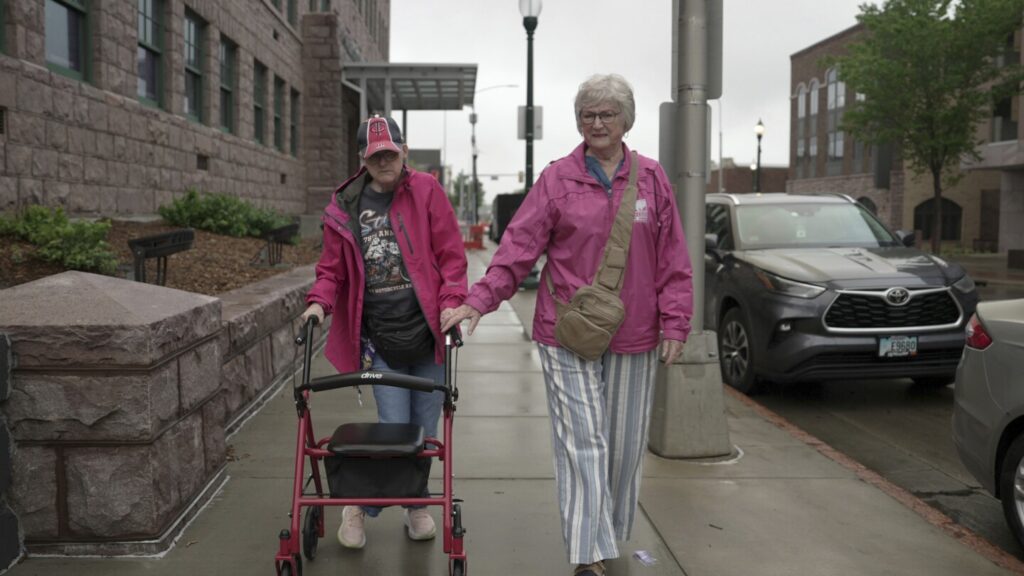
SIOUX FALLS, S.D. — In the years before widespread vaccination, infectious diseases claimed the lives of countless children across America. By 1900, nearly one in five children never reached their fifth birthday, succumbing to illnesses that vaccines would later nearly eradicate. However, vaccine hesitancy is now contributing to a resurgence of these preventable diseases, with immunization rates declining and skepticism even reaching public officials, such as Robert F. Kennedy Jr., a known anti-vaccine advocate, now running the federal health department.
Dr. William Schaffner, an infectious disease expert at Vanderbilt University Medical Center, explains,
“This concern, this hesitancy, these questions about vaccines are a consequence of the great success of the vaccines – because they eliminated the diseases. If you’re not familiar with the disease, you don’t respect or even fear it. And therefore you don’t value the vaccine.”
Despite overwhelming evidence supporting vaccine safety, anti-vaccine activists continue to highlight rare side effects, overshadowing the severe risks posed by the diseases themselves.
Personal Stories Highlight the Consequences of Vaccine Hesitancy
Families who have witnessed the devastating effects of preventable diseases firsthand are speaking out. For them, the resurgence of diseases like measles and whooping cough is a painful reminder of lives altered forever.
Rubella’s Lasting Impact on a Family
In Sioux Falls, 80-year-old Janith Farnham guides her 60-year-old daughter, Jacque, through an art center. Jacque, born with congenital rubella syndrome, faces numerous health challenges due to her mother’s exposure to rubella during pregnancy. At that time, no vaccine was available, leaving Janith with a 90% chance of having a child with the syndrome.
Janith recalls,
“Things weren’t right almost immediately. The baby wouldn’t respond to sounds or look at anything but lights.”
Despite her efforts to help Jacque thrive, the syndrome has taken a toll over the years, leading to diabetes, glaucoma, and arthritis. Janith’s frustration with vaccine hesitancy is palpable,
“I know what can happen, and I just don’t want anybody else to go through this.”
A Measles Outbreak with Tragic Consequences
Patricia Tobin’s sister, Karen, died at age six after contracting measles in 1970. Despite the availability of a vaccine, Karen’s mother delayed immunization, believing there was time. A measles outbreak proved otherwise, and Karen succumbed to encephalitis caused by the disease.
Today, Tobin is dismayed by the complacency surrounding measles vaccination,
“I’m very upset by how cavalier people are being about the measles. I don’t think that they realize how destructive this is.”
With vaccination rates below the 95% threshold needed for herd immunity, communities remain vulnerable to outbreaks.
Polio’s Lingering Effects
Lora Duguay, a polio survivor from Clearwater, Florida, recalls her early years spent in a hospital isolation ward. Although she defied doctors’ predictions and regained mobility, she later developed post-polio syndrome, a condition that has progressively limited her physical abilities.
Despite these challenges, Duguay finds purpose in her art, painting on smaller surfaces due to her physical limitations.
“Herd immunity keeps everyone safe by preventing outbreaks that can sicken the vulnerable,”
she emphasizes, highlighting the importance of widespread vaccination.
Whooping Cough’s Heartbreaking Toll
Katie Van Tornhout’s daughter, Callie Grace, died from whooping cough at just 37 days old. Too young for vaccination, Callie was exposed to someone who hadn’t received a booster shot. Van Tornhout now advocates for childhood immunization, sharing her story to prevent similar tragedies.
She reflects,
“I watched my daughter die from something that was preventable … You don’t want to walk in my shoes.”
Her advocacy work through the nonprofit Vaccinate Your Family aims to educate others about the critical role of vaccines in protecting children.
The Path Forward: Addressing Vaccine Hesitancy
The resurgence of vaccine-preventable diseases underscores the urgent need to address vaccine hesitancy. Experts like Dr. Schaffner emphasize the importance of public education and dispelling myths about vaccines. As families continue to share their stories, the hope is to reignite an understanding of the vital role vaccines play in safeguarding public health.
The Associated Press Health and Science Department receives support from the Howard Hughes Medical Institute’s Department of Science Education and the Robert Wood Johnson Foundation. The AP is solely responsible for all content.







